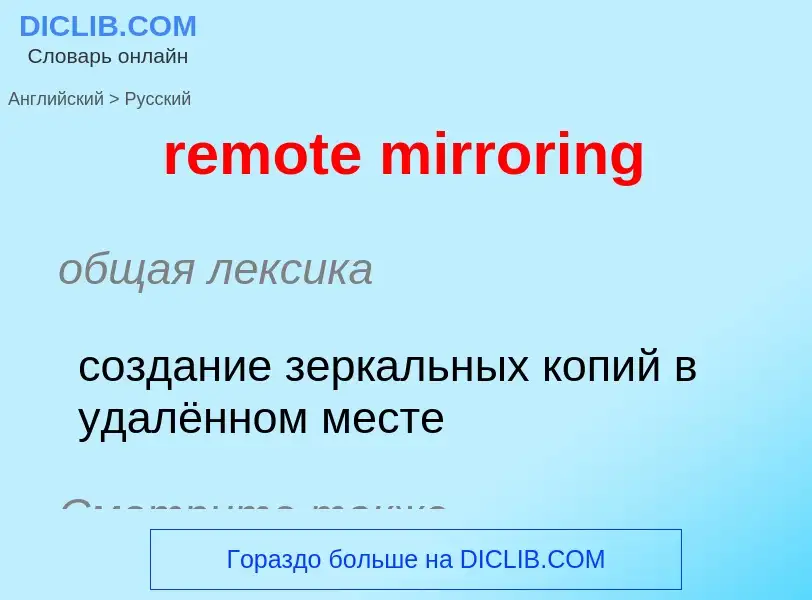Traducción y análisis de palabras por inteligencia artificial ChatGPT
En esta página puede obtener un análisis detallado de una palabra o frase, producido utilizando la mejor tecnología de inteligencia artificial hasta la fecha:
- cómo se usa la palabra
- frecuencia de uso
- se utiliza con más frecuencia en el habla oral o escrita
- opciones de traducción
- ejemplos de uso (varias frases con traducción)
- etimología
remote mirroring - traducción al Inglés
общая лексика
зеркальные диски (в NetWare)
"зеркалирование" дисков, зеркальное дублирование
защита данных путем создания дополнительной их копии на отдельном диске дискового массива. При этом диски могут быть подсоединены к одному каналу ввода-вывода. Применяется в RAID 1
профессионализм
дублирование дисков[ых данных] на уровне накопителей (в подсистеме с одним контроллером) отображающее дублирование дисков
Смотрите также
Definición
Wikipedia
Genealogical bewilderment is a term referring to potential identity problems that could be experienced by a child who was either fostered, adopted, or conceived via an assisted reproductive technology procedure such as surrogacy or gamete donation (egg or sperm donation).
The concept was first introduced in a 1952 letter to the Journal of Mental Health by psychiatrist E. Wellisch. The term "genealogical bewilderment" was coined in 1964 by psychologist H. J. Sants, a colleague of Wellisch, referring to the plight of children who have uncertain, little, or no knowledge of one or both of their natural parents. Sants argued that genealogical bewilderment constituted a large part of the additional stress that adoptees experienced that is not experienced by children being raised by their natural parents.
In the 1970s, researchers Sorosky, Pannor and Baran drew upon the work of Sants to explore the concept in a number of publications, including a book titled The Adoption Triangle, thus bringing "genealogical bewilderment" to a larger audience.


